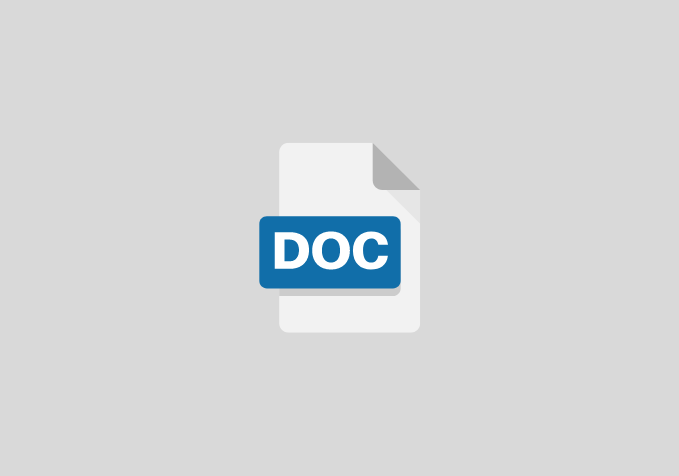The Effects of Accountability and Transparency in Financial Management of Nigerian Local Government (a Case Study of Bende Local Government)
CHAPTER ONE
OBJECTIVE OF THE STUDY
- The following objectives to this research work stand to be achieved; 1) To ascertain whether accountability and transparency has put to check the circumvention of due process in financial and non-financial activities of the local government council in Nigeria.
- To ascertain whether the inhabitants of local government council have benefited from the proceed of accountability and transparency through the improvement of social amenities.
- To ascertain whether the accountability and transparency have affected the official and non-official financial behavioral attitudes of council staff in Nigeria.
CHAPTER TWO
REVIEW OF RELATED LITERATURE
This chapter seeks to show and explains the total overview of what a local government is and to highlight the structure and function of a local government. It also shows and x-rays the local government financial profile. This also shows in practice government stand in accountability and transparency is all about being answerable to those who have invested their trust, faith and resources to you. According to Adegite (2010) defined “accountability as the obligation to demonstrate that work which has been conducted in accordance with agreed rules and standards and the officer reports fairly and accurately on performance results vis-à-vis mandated role or plans. It means doing things transparently in line with due process and the provision of feedback.
Johnson (2004) says that public accountability is an essential component for the functioning of our political system, as accountability means that those who are charged with drafting and carrying out policy should be obliged to give an explanation of their actions to their electorate. Premchand (1999) observed that the capacity to achieve full accountability has been and continues to be inadequate, partly because of the design of accountability itself and partly because of the widening range of objectives and associated expectations attached to accountability the further argues that if accountability is to be achieved in full including its constructive aspects, then it must be designed with care. The objective of accountability should go beyond the naming and sharing of officials, or the pursuit of sleaze, to a search for durable improvements in economic management, to reduce the incidence of institutional recidivism. The future of accountability consists in covering the macro aspects of economic and financial sustainability, as well as the micro aspects of service delivery. It should envisage a three-tier structure of accountability: that of official (both political and regular civil employees), that of intra- governmental relationships and that between government and their respective legislatures.
According to Cokes (2010), the various approaches to accountability based on the language of account can be grouped into:
- Process based accountability: this approach measures compliance with pre set standard and formally defined outcomes. This includes fiscal and managerial accountability with reliance on the use of accounting methodologies.
- Performance based accountability: this approach measures performance against broad objectives; this measure may be qualitative and the criteria against which performance is measured less precisely defined Adegite (2010) also noted that there are three pillars of accountability, which the UNDP tagged ATI ( Accountability Transparency and Integrity). Accountability which is segmented into:
- Financial accountability: The obligation of any one handing resources, public office or any other positions of trust to report on the intended and actual use of the resources or of the designated office.
- Administrative accountability: This type of accountability involves a sound system of internal control, which complements and ensures proper checks and balances supplied by constitutional government and an engaged citizenry. These include ethical codes, criminal penalties and administrative reviews.
CHAPTER THREE
RESEARCH METHODOLOGY
This topic the effect of transparency in financial management and accountability of local government councils in Nigeria is actually a vast area of study. At least we do recognize the uniqueness of the local government council.
Though they are much local government council in Abia state, the research recast restricted her choice to bende local government council.
This chapter discusses how data were source by the researcher, research design, and population of the study, sample design and technique, sources of data collection, instrument for data collection validity and reliability of the instrument and method of data analysis.
RESEARCH DESIGN
The design of the study is the description of various processes to be undertake for the successful completion of the work. The research is a descriptive survey research. The design will be used in making decision on the data sourced research instrument sampling, plan and content method. This is to enable the researcher obtain response and draw conclusion on the research problem
CHAPTER FOUR
PRESENTATION AND ANALYSIS OF DATA
This chapter focuses on the presentation and analysis of data as provided by the questionnaires distributed and collected from respondents. Also hypothesis was formulated and their validity test against the information gathered from the respondents using z-test and percentage.
REFERENCES
- Adegoroye, G. (2008). Public service reform for sustainable development: The Nigeria experience. Keynote Address Delivered at the Commonwealth Advanced Seminar, held betwee 20th – 23rd March, 2006, Wellington, New Zealand.
- Anyafo, A. .M. O. (1996). Public Finance in a Developing Economy: The Nigerian Case. Enugu: B & F Publications UNEC.
- Anyanwu, J. C. (1997). Nigerian Public Finance. Onitsha: Joanee Educational Publishers Limited.
- Appah, E. (2008). Financial Management: Theory, Strategy and Practice. Port Harcourt: Ezevin Printing and Publishing Company.
- Appah, E. (2009). “Value for Money Audit: A Viable Tool for Promoting Accountability in the Nigerian Public Sector”, Nigerian Accountant, 42(2): 33-35.


